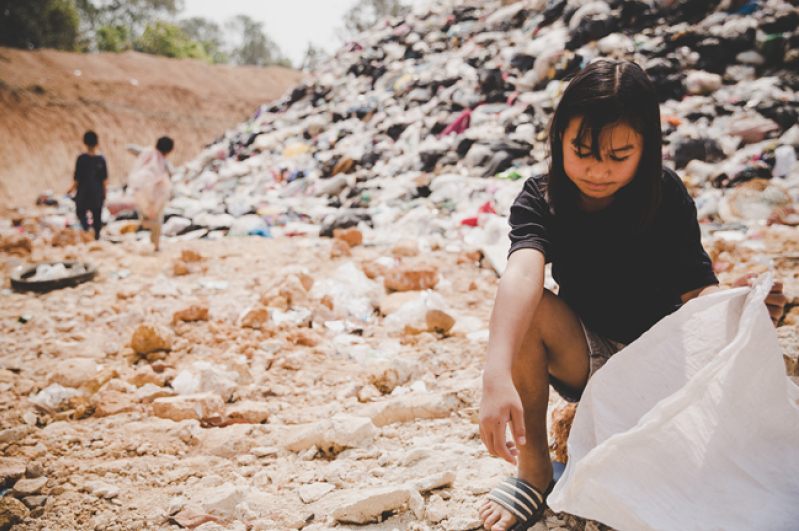
The United Nations' International Day for the Eradication of Poverty is celebrated on October 17 every year to raise global awareness of the issue of poverty, a timeless issue the Bible also repeatedly discusses in numerous passages and laws regarding care for the disadvantaged and social justice.
The theme of this year's International Day for the Eradication of Poverty is “Ending Social and Institutional Maltreatment Acting together for just, peaceful and inclusive societies”. The 32nd International Day for the Eradication of Poverty will be commemorated at the United Nations Headquarters in New York today (17th) from 1:15pm to 2:30pm.
Building Just and Inclusive Societies for Poverty Eradication
In an article published on its website, the United Nations points out that poverty has multiple dimensions, some visible and others hidden in the fabric of society. These dimensions are interconnected. This year's theme places special emphasis on the social and institutional abuses experienced by people living in poverty and calls for concerted action to achieve Sustainable Development Goal 16 (SDG 16) to promote more just, peaceful and inclusive societies.
People living in poverty often face negative societal attitudes. They may be prejudiced and discriminated against on the basis of their appearance, accent or area of residence, or even blamed and treated disrespectfully because of their poverty. These societal abuses further contribute to an environment of institutionalized abuse that denies people access to basic human rights, including healthcare, education, housing and employment.
The interaction of social and institutional abuses contributes to violence and injustice, and is particularly damaging to victims when these abuses are combined with other forms of prejudice, such as gender, sexual orientation, race, or ethnicity. Understanding the interplay between poverty and violence and domination is therefore critical to improving the lives of the poor.
The everyday experiences of injustice and dehumanization undermine the self-esteem of people living in poverty, destroying their agency to change their situation and denying them dignity and opportunities to escape poverty. The United Nations emphasizes that social and institutional abuses take a heavy toll on human potential.
Poverty A Global Plague
Poverty is a global plague affecting hundreds of millions of people, but it is not inevitable. It is the direct result of social and governmental choices, UN Secretary-General António Guterres said in his message. He emphasized that ending global poverty and achieving the sustainable development goals would require governments to shape people-centered institutions and systems and prioritize investment in decent work, learning opportunities and social protection. He called for programs and reforms that support sustainable development and help developing countries invest in their people and build a society where no one is left behind.
The International Day for the Eradication of Poverty originated from a large gathering in Paris in 1987, when it was declared that 'poverty is a violation of human rights', emphasizing the need to ensure that human rights are respected. In 1992, the United Nations officially designated the day as the International Day for the Eradication of Poverty, encouraging member states to actively promote poverty reduction and ultimately achieve a sustainable future.
The Bible Emphasizes Caring for the Vulnerable and Promoting Social Justice
For Christians, caring for the underprivileged is an unshirkable duty. The Bible makes many references to caring for the poor. Proverbs 19:17 says, “Whoever is kind to the poor lends to the LORD, and he will reward them for what they have done.” Giving to the poor is seen as giving to God. At the same time, Acts 2:44-45 records that the early church believers ”had everything in common. They sold property and possessions to give to anyone who had need.“
The Bible also supports the creation of equitable social justice. In Isaiah 1:17, God calls people to “Learn to do right; seek justice. Defend the oppressed. Take up the cause of the fatherless; plead the case of the widow.” This passage emphasizes social justice and calls believers to take positive action to protect the vulnerable.







